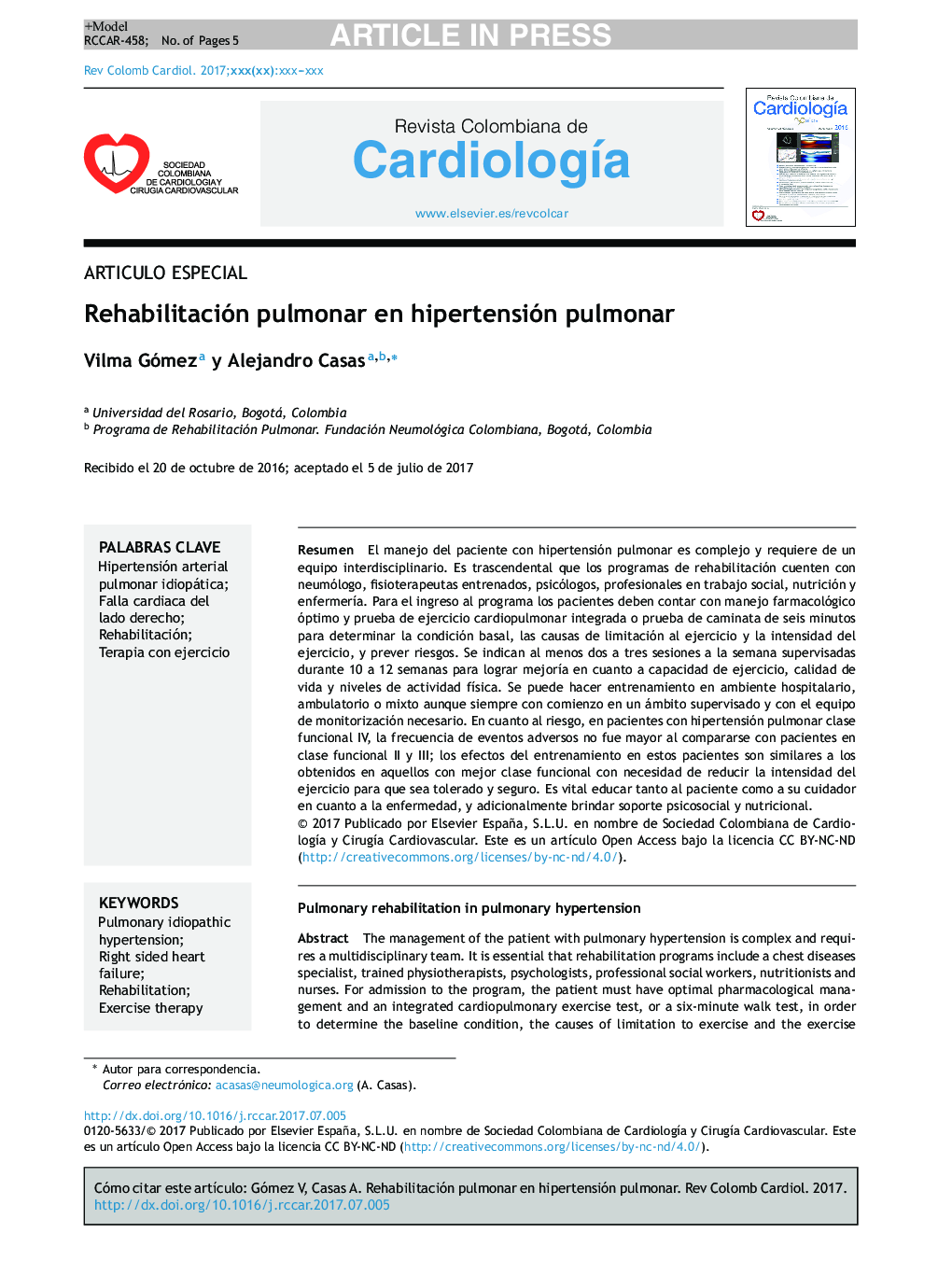| Article ID | Journal | Published Year | Pages | File Type |
|---|---|---|---|---|
| 5620501 | Revista Colombiana de Cardiología | 2017 | 5 Pages |
Abstract
The management of the patient with pulmonary hypertension is complex and requires a multidisciplinary team. It is essential that rehabilitation programs include a chest diseases specialist, trained physiotherapists, psychologists, professional social workers, nutritionists and nurses. For admission to the program, the patient must have optimal pharmacological management and an integrated cardiopulmonary exercise test, or a six-minute walk test, in order to determine the baseline condition, the causes of limitation to exercise and the exercise intensity, and to anticipate risks. At least two or three supervised sessions per week for 10 to 12 weeks are indicated in order to achieve an improvement as regards exercise capacity, quality of life, and physical activity levels. Training can be done in the hospital, as an outpatient, or mixed, although always starting in a supervised environment, and with the necessary monitoring equipment. As regards the risk, in patients with pulmonary hypertension functional class IV, the frequency of adverse events was not any higher when compared with patients in functional class II and III. The effects of training in these patients are similar to that obtained in those with a better functional class, with the need to reduce the intensity of the exercise so that it is tolerated and safe. It is essential to educate both the patients and their carers about the disease, and additionally to provide psychosocial and nutritional support.
Related Topics
Health Sciences
Medicine and Dentistry
Cardiology and Cardiovascular Medicine
Authors
Vilma Gómez, Alejandro Casas,
